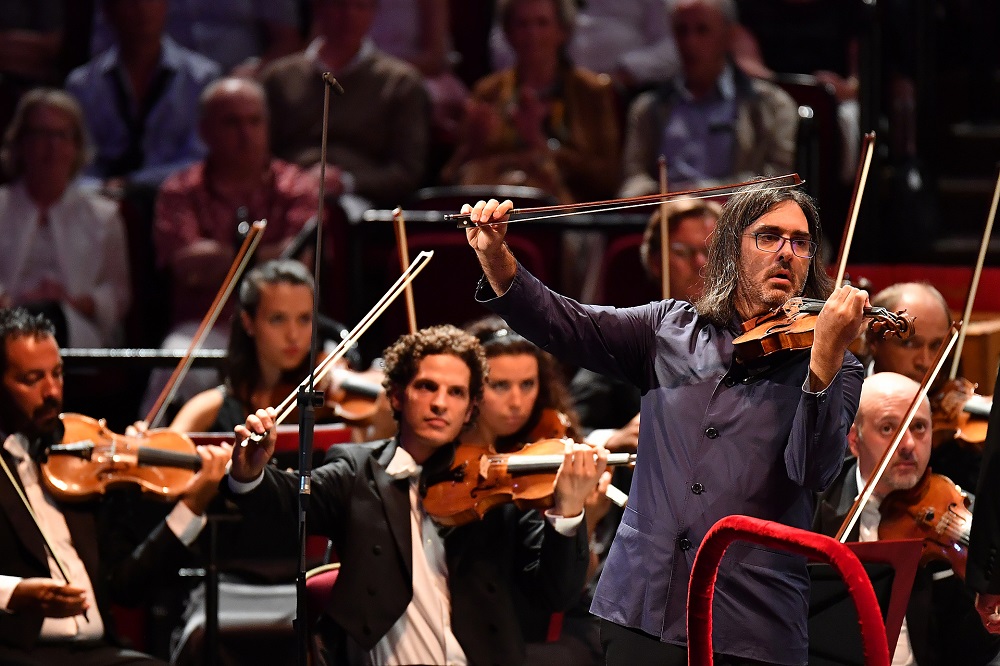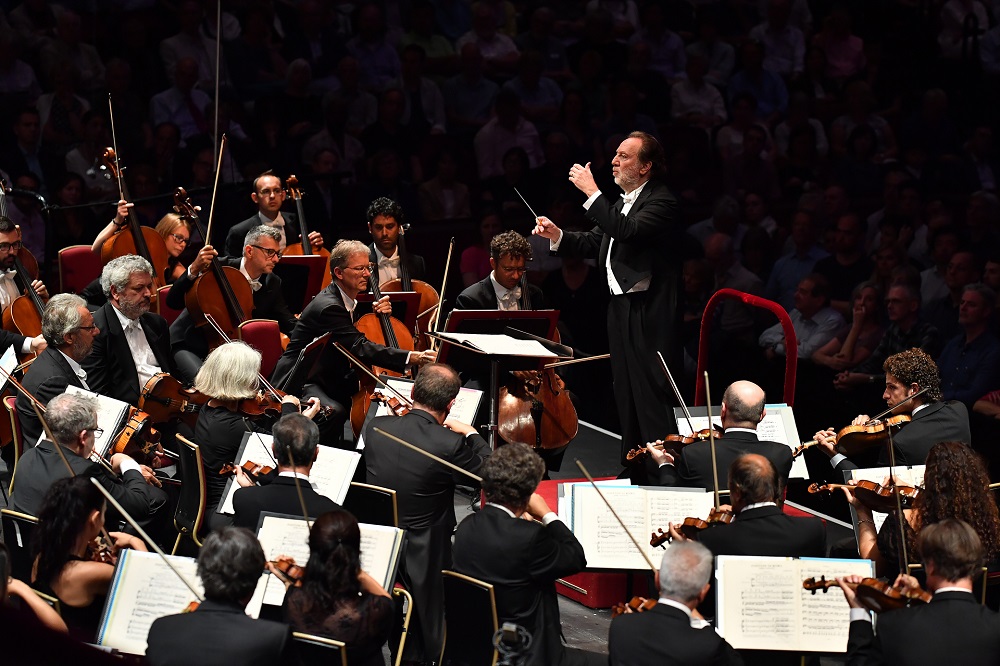Last night was one of those rare occasions when I'd rather have heard Respighi's gaudy-brilliant Roman Festivals than Brahms's Violin Concerto. It wasn't just that concerts like Charles Dutoit's 2014 Prom had shown us that the Italian's Roman trilogy can actually work as a sequence when Riccardo Chailly was offering us only two of the three. Leonidas Kavakos simply didn't have the consistency to thread the lyrical with the virtuosic aspects and say something new about the Brahms staple, and he was surprisingly subdued at times. But then so was the orchestra in the tone-poems, beautiful of timbre but reserved in all but the last of Respighi's explosions of colour.
Neither Chailly nor his Milanesi seemed willing to go with the special atmosphere of the Proms: what, no encore from a major visiting orchestra? After the big showpieces, Nino Rota or Verdi ballet music would have been so welcome. Yes, this team is Italian, but from the relatively chilly north. Its sophistication was obvious from the first orchestral phrases of the Brahms, dark colours beautifully blended; and when collective violins took up the great melodies and soared, they only pointed up what was missing in Kavakos's playing (the soloist pictured below). He came to life in virtuoso double-stopping; but what happened to the many cantabile passages? From where I was sitting, they sounded flat and tense, with none of the generosity and special imagination Nikolaj Znaider brought to every phrase in a magnificent Prom with Fabio Luisi and the Danish National Symphony Orchestra two years ago. From the start, there was a sense of pushing forward too much, at odds with the orchestra, even though Chailly was always there to follow him. The biggest misalliance came in the Adagio, where the melody so ineffably sung by the Scala oboist - I hesitate to say which, since two principals were listed in the programme - got bumped about in Kavakos's version. This usually great player is capable of more.
He came to life in virtuoso double-stopping; but what happened to the many cantabile passages? From where I was sitting, they sounded flat and tense, with none of the generosity and special imagination Nikolaj Znaider brought to every phrase in a magnificent Prom with Fabio Luisi and the Danish National Symphony Orchestra two years ago. From the start, there was a sense of pushing forward too much, at odds with the orchestra, even though Chailly was always there to follow him. The biggest misalliance came in the Adagio, where the melody so ineffably sung by the Scala oboist - I hesitate to say which, since two principals were listed in the programme - got bumped about in Kavakos's version. This usually great player is capable of more.
The continuity with which Chailly swept from Brahms's slow movement into the finale found the opening water-music in Fountains of Rome meandering unobtrusively through the chatter of a noisy Proms audience: refreshment currently lacking in the Italian capital now that Lake Bracciano is at an all-time low and the fountains have been switched off. Respighi's more than just picture-postcard depiction of Roman dawn and sunset can rarely have sounded more layered or exquisite. But we needed more of a Triton-blast from the horns in the second picture, and the Trevi procession stayed light and swift. Would Chailly unleash more in Pines of Rome? Still not enough in the chatter and songs of ragazzi in the Villa Borghese; nor was the contrast of catacomb mystery as magical as Stéphane Denève and the Royal Scottish National Orchestra had made it in another unforgettable past Prom. But the distant solo trumpet, perfectly vibratoed, sounded supremely exquisite, and so, too, were the wind solos on the Janiculum, not to be outdone by the recorded nightingale rippling round the hall.
Would Chailly unleash more in Pines of Rome? Still not enough in the chatter and songs of ragazzi in the Villa Borghese; nor was the contrast of catacomb mystery as magical as Stéphane Denève and the Royal Scottish National Orchestra had made it in another unforgettable past Prom. But the distant solo trumpet, perfectly vibratoed, sounded supremely exquisite, and so, too, were the wind solos on the Janiculum, not to be outdone by the recorded nightingale rippling round the hall.
Never mind that we didn't get six saxhorns for the extra cohorts of the Roman army processing down the Appian Way; the standard brass ensemble on high still delivered the necessary frisson. With its organ pedals and its ensembles threatening to overwhelm most venues, the military denouement of Pines is as much a Proms institution as Holst's The Planets. If only there had been more thrills throughout this concert - and Prommers should not forgive the lack of an encore (recent light shed on a late arrival and rehearsal - see comments below - suggest a more forgiving spirit, but still doesn't entirely explain the lack). For an orchestra from abroad to refuse it is seriously to misjudge the spirit of place.













Add comment